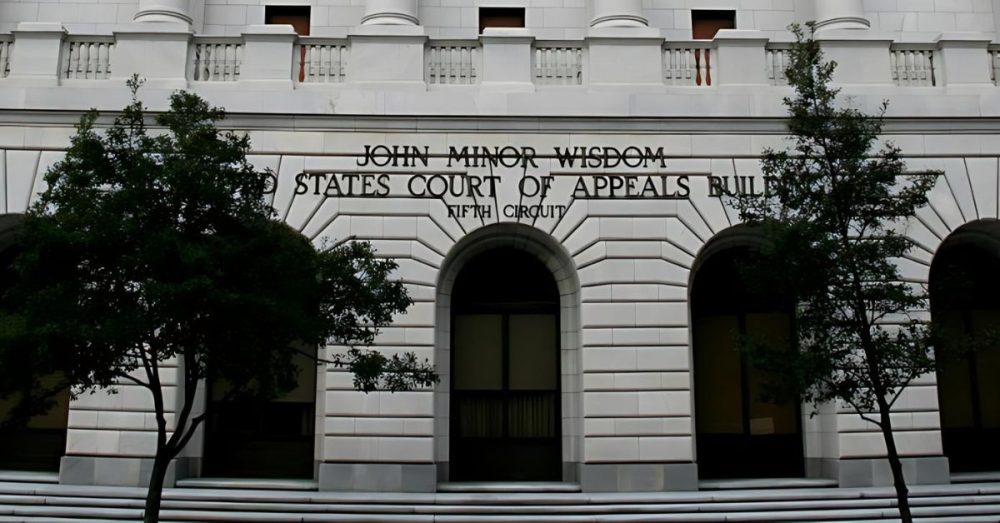(Texas Scorecard) – Galveston County just won a major redistricting case that could shift dozens of political seats in Texas and elsewhere from Democrats to Republicans, at all levels of government.
Thursday’s decision by the U.S. Fifth Circuit Court of Appeals concluded that federal law does not protect “coalition” districts created by “opportunistic political combinations” of voters from different minority groups.
The ruling overturns nearly four decades of precedent in the appellate court, which has jurisdiction over Texas, Louisiana, and Mississippi.
Public Interest Legal Foundation, representing Galveston County in the case, called the ruling “a huge win… to stop the political weaponization of the Voting Rights Act.”
The redistricting case challenged how the appellate court previously interpreted Section 2 of the VRA which Democrats were misusing for partisan political advantage.
PILF attorneys argued that the Voting Rights Act was meant to protect individual minority groups’ right to participate in elections, not guarantee Democrats will be elected.
Galveston County was sued in 2022 over district maps for county commissioners that were redrawn following the 2020 census. The redistricting plan eliminated the lone Democrat commissioner’s majority-minority precinct, a coalition district of blacks and Hispanics.
Three sets of plaintiffs then sued the county: a group of current and former Democrat officeholders, local chapters of the NAACP and LULAC, and the U.S. Department of Justice. The three lawsuits were consolidated into Petteway v. Galveston County.
The plaintiffs claimed that Section 2 of the VRA required the county to maintain a majority-minority district by grouping a “coalition” of black and Hispanic voters.
Neither blacks nor Hispanics are a large enough group in Galveston County to create a majority district.
Galveston County’s attorneys argued that the Voting Rights Act does not protect coalition districts, which represent political, not racial, alliances.
Courts in other federal circuits do not allow aggregating distinct minority groups to force what are almost always Democrat districts.
Following a two-week trial in August 2023, a federal judge in Galveston ruled in favor of the plaintiffs, citing the appellate court precedent of allowing coalition districts.
Galveston County appealed the ruling to the Fifth Circuit.
A panel of three appellate judges heard arguments in November 2023, then declared that the circuit court’s past decisions supporting coalition claims were “wrong as a matter of law” and “should be overturned.”
However, only a ruling by the full court of Fifth Circuit judges or the U.S. Supreme Court could overturn such a precedent.
The full Fifth Circuit heard the case in May.
The judges concluded in their August 1 ruling:
This court will not remain in the forefront of authorizing litigation, not compelled by law or the Supreme Court, whose principal effects are to (a) supplant legislative redistricting by elected representatives with judicial fiat; (b) encourage divisively counting citizens by race and ethnicity; and (c) displace the fundamental principle of democratic rule by the majority with balkanized interests.
Thursday’s en banc ruling eliminating coalition districts could transform how electoral maps are drawn. Democrats in Texas and other states stand to lose seats across all levels of government, from school boards to the state legislature to Congress.
“Ultimately, the Supreme Court will have to decide this issue, and that will, at least in this case, depend on whether the NAACP and the Justice Department decide to appeal,” election expert Hans von Spakovsky wrote in a commentary for The Daily Signal. “Given the Supreme Court’s prior decision in the Bartlett case on crossover districts, if I were a betting man, I would bet against any appeal being filed.”
In addition to ruling against coalition districts, the Fifth Circuit sent the case back to the district court to consider the plaintiffs’ intentional discrimination and racial gerrymandering claims.


